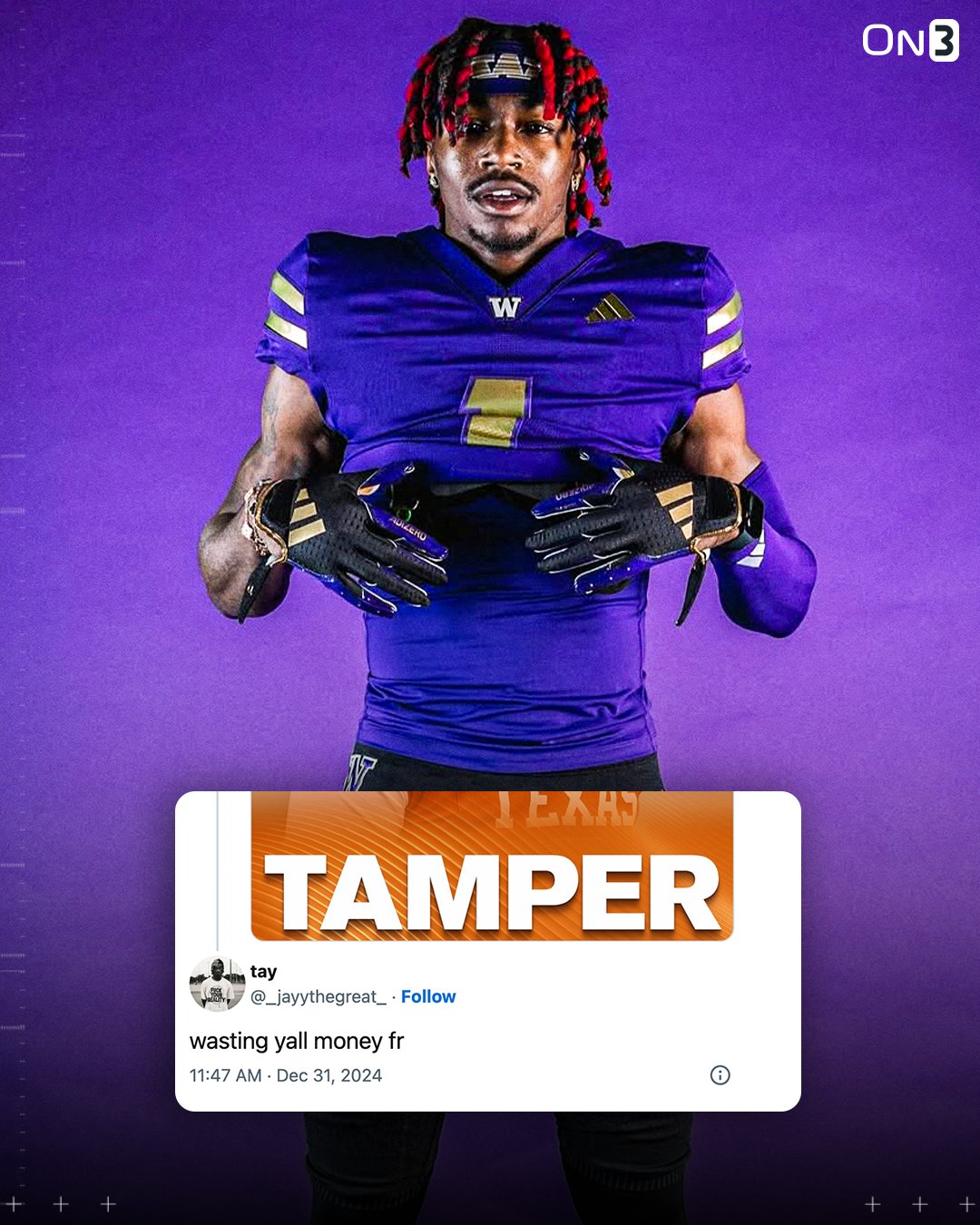- Former Texas WR Johntay Cook Responds to Quinn Ewers’ Reported $6M Transfer Portal Offer: “Wasting Y’all Money Fr”
The world of college football has entered a new era, with the introduction of Name, Image, and Likeness (NIL) deals and significant financial incentives reshaping the landscape. Amid this changing environment, former Texas wide receiver Johntay Cook made waves with a blunt response to a reported $6 million NIL offer for quarterback Quinn Ewers to enter the transfer portal.
Cook’s statement, “wasting y’all money fr,” shared on social media, has sparked widespread discussion about the value of such lucrative deals and the priorities of programs willing to spend heavily to secure high-profile athletes.
Quinn Ewers, the standout quarterback for the Texas Longhorns, has been one of the most talked-about players in college football. A former five-star recruit, Ewers began his career at Ohio State before transferring to Texas, where he quickly became a cornerstone of the program.
Known for his elite arm talent and football IQ, Ewers has drawn interest from various programs looking to elevate their teams with a proven playmaker. Reports of a $6 million NIL offer to entice Ewers to enter the transfer portal reflect the intense competition among schools to secure top-tier talent.
Johntay Cook, a former Texas wide receiver and one of Ewers’ former teammates, didn’t hold back in his reaction to the reported offer. His comment, “wasting y’all money fr,” suggests skepticism about the value of such a deal and raises questions about the effectiveness of massive financial incentives in college football.
Cook’s remark sheds light on a growing sentiment among some players and fans that NIL money might not always translate to on-field success or long-term benefits for programs. While the allure of a high-profile player like Ewers is undeniable, Cook’s perspective suggests that programs should carefully consider the broader implications of investing heavily in individual athletes.
NIL deals have fundamentally changed college football, providing players with unprecedented earning potential and giving programs new tools to attract talent. However, the rapid rise of multimillion-dollar deals has also raised concerns about sustainability, fairness, and the potential impact on team dynamics.
Cook’s comment taps into a broader debate about the role of money in college sports. Critics argue that focusing too much on individual deals could undermine the values of teamwork and development that have traditionally defined college athletics. Supporters, on the other hand, view NIL as a necessary step toward empowering athletes and leveling the playing field.
For Quinn Ewers, the reported $6 million offer adds another layer of pressure to an already high-stakes career. As one of the most visible players in college football, Ewers faces immense expectations both on and off the field.
If he were to accept such a deal and transfer, the scrutiny surrounding his performance would likely intensify, with fans and analysts questioning whether he could live up to the financial investment. Ewers’ decisions, in turn, could influence how other athletes approach NIL opportunities and their own career trajectories.
Cook’s candid response also reflects his own experiences as a college athlete navigating the complexities of NIL and team culture. Having been part of the Texas Longhorns, Cook understands the challenges and pressures that come with being in a high-profile program. His comment might resonate with players who share similar concerns about the evolving dynamics of college football.
At its core, Cook’s statement serves as a reminder that success in football is about more than just money. It’s about building a cohesive team, fostering trust among players, and developing talent over time.
Johntay Cook’s reaction to Quinn Ewers’ reported $6 million transfer portal offer has ignited an important conversation about the role of NIL in college football. While the financial incentives for players are undeniable, Cook’s comment highlights the need for programs to balance their investments with a focus on team culture and long-term success.
As the NIL era continues to evolve, players, coaches, and fans alike will need to navigate the challenges and opportunities it presents. For Ewers, the decision to stay or transfer will not only shape his career but also serve as a case study in the broader NIL debate.
Cook’s words, though brief, carry weight in a sport where money, ambition, and tradition collide. Whether programs heed his warning remains to be seen, but one thing is certain: the landscape of college football will never be the same.
